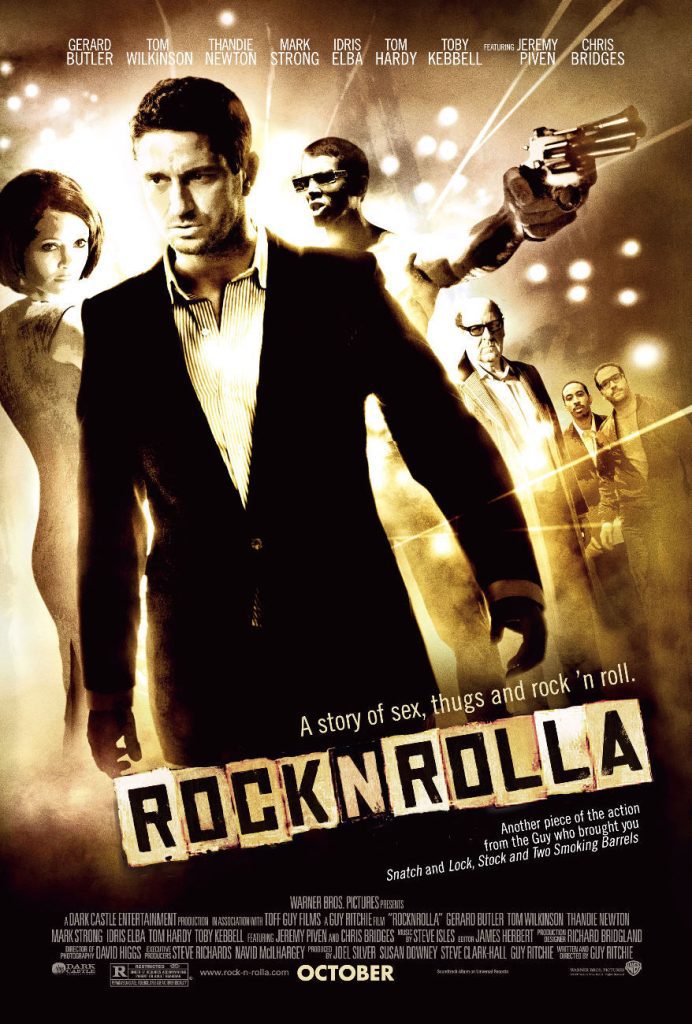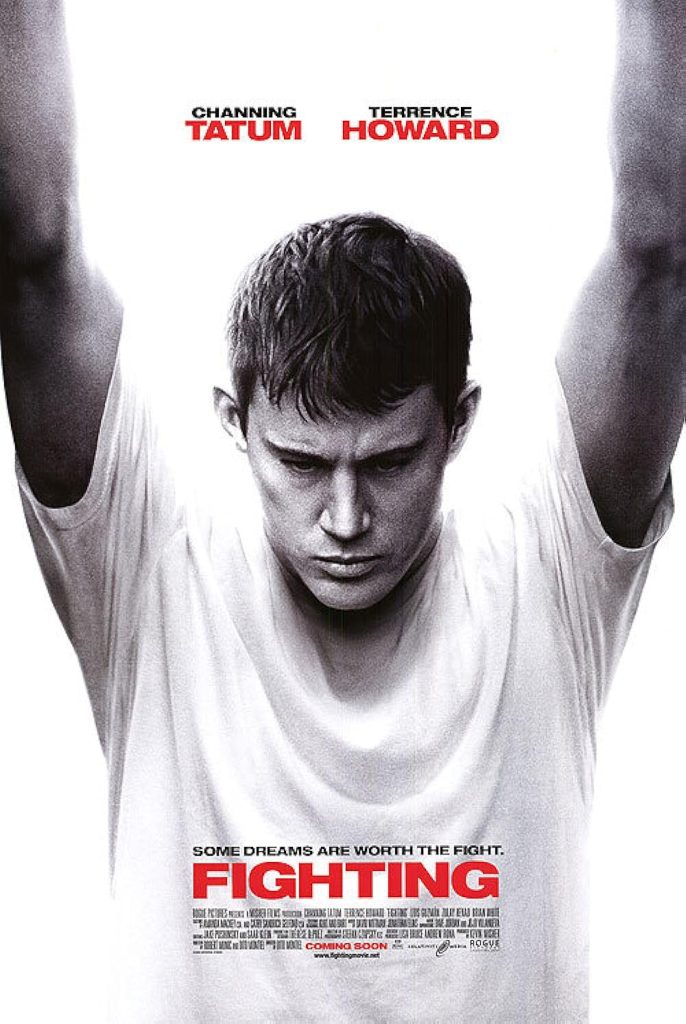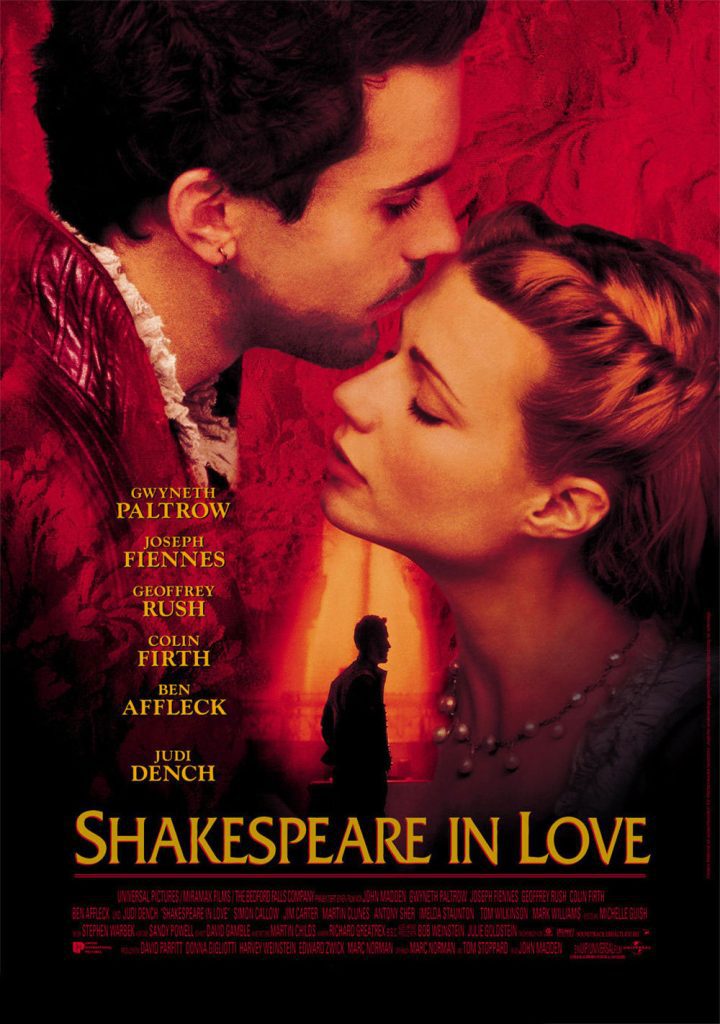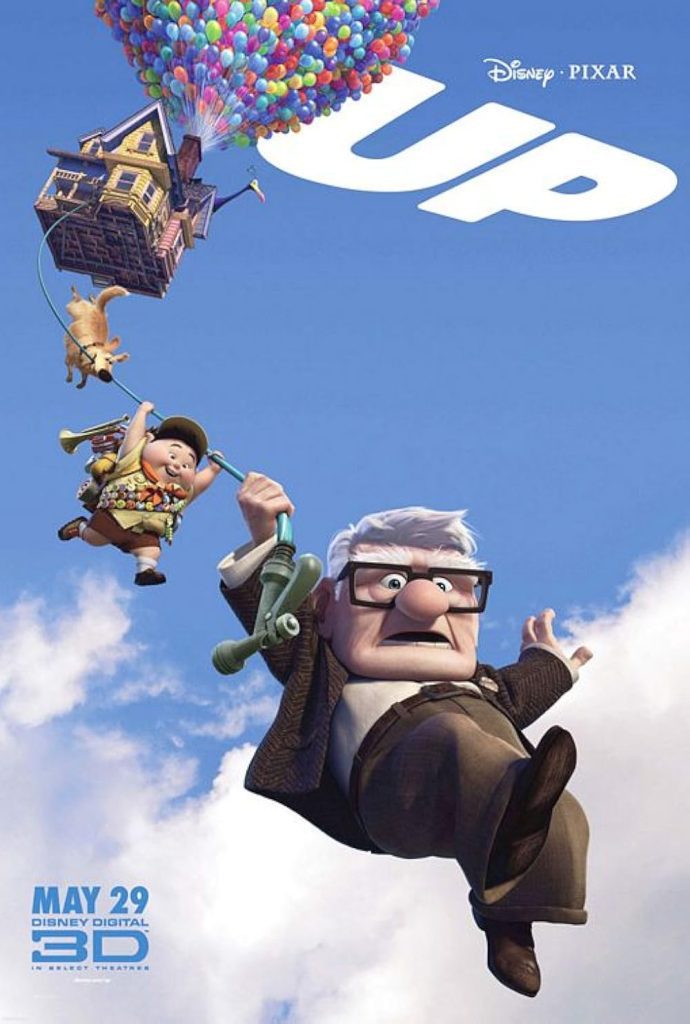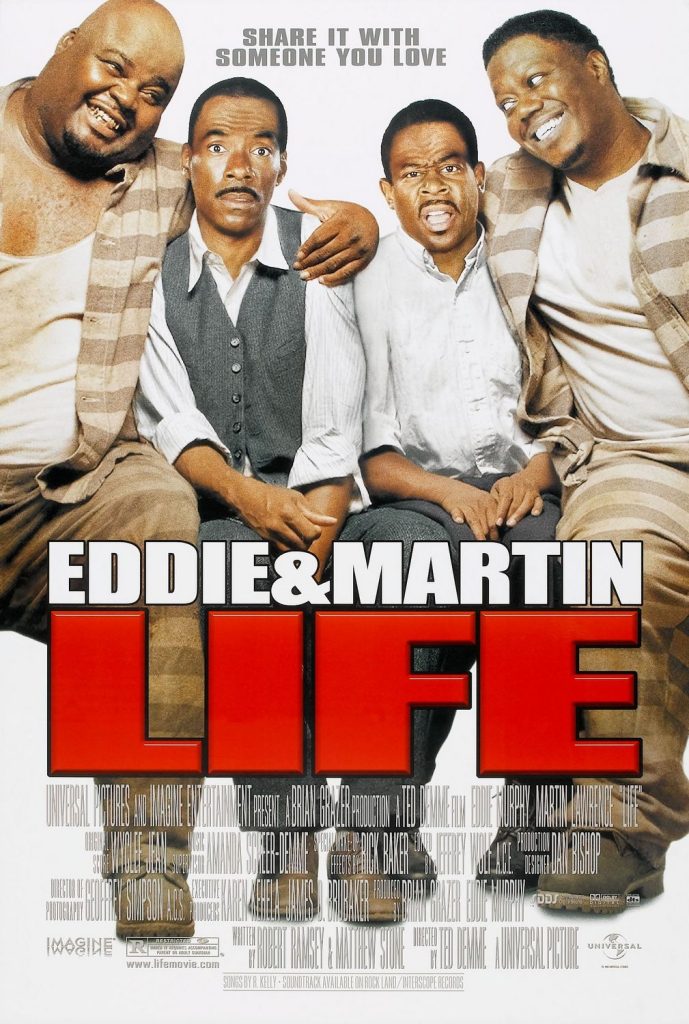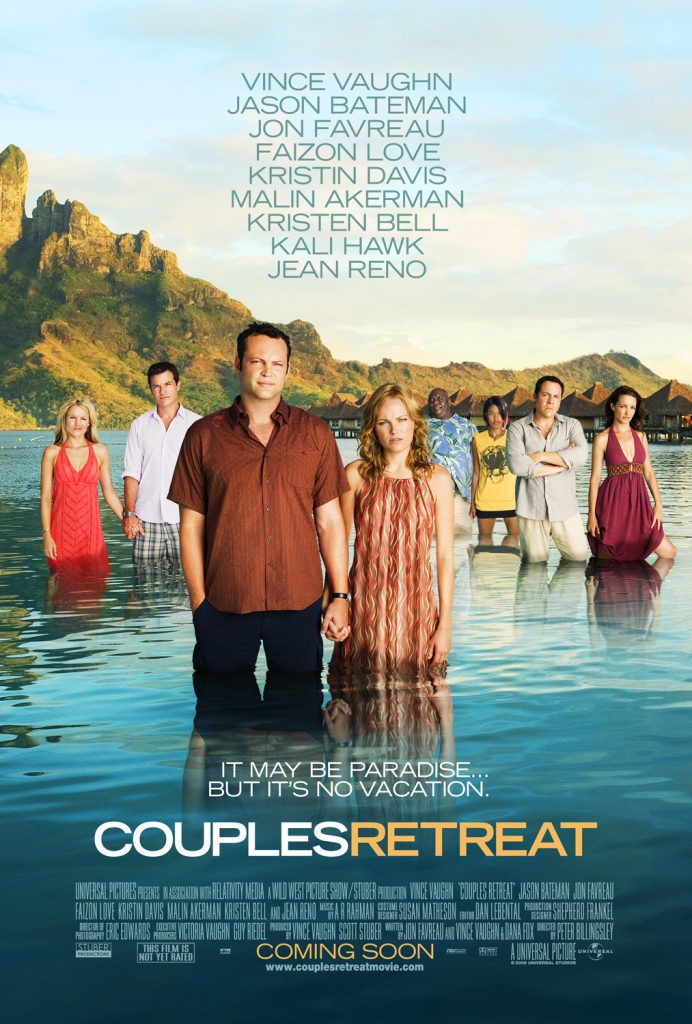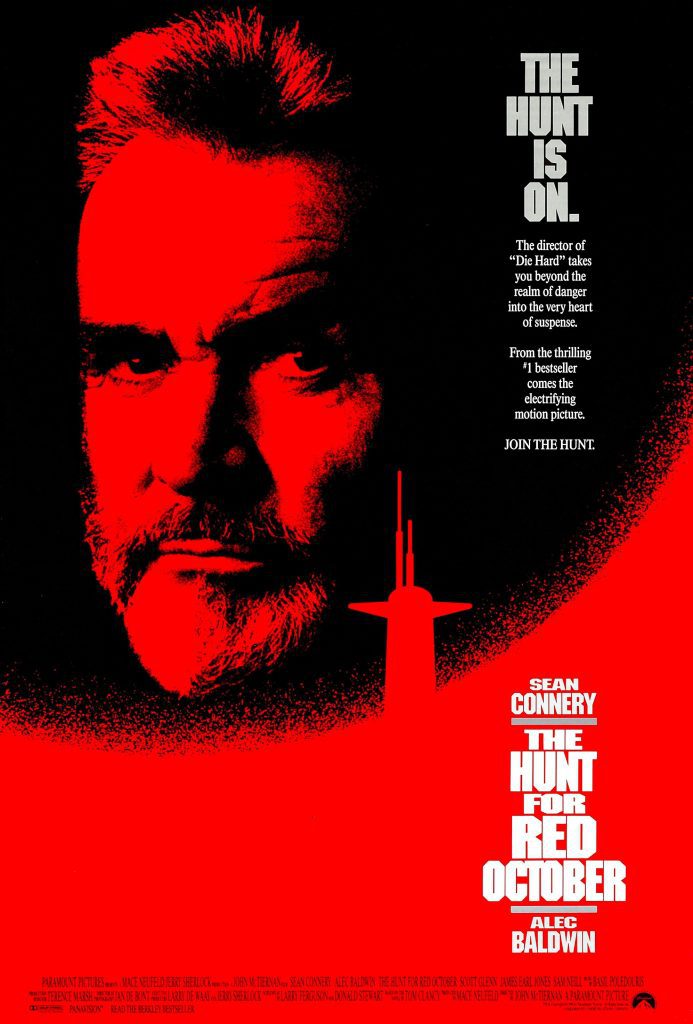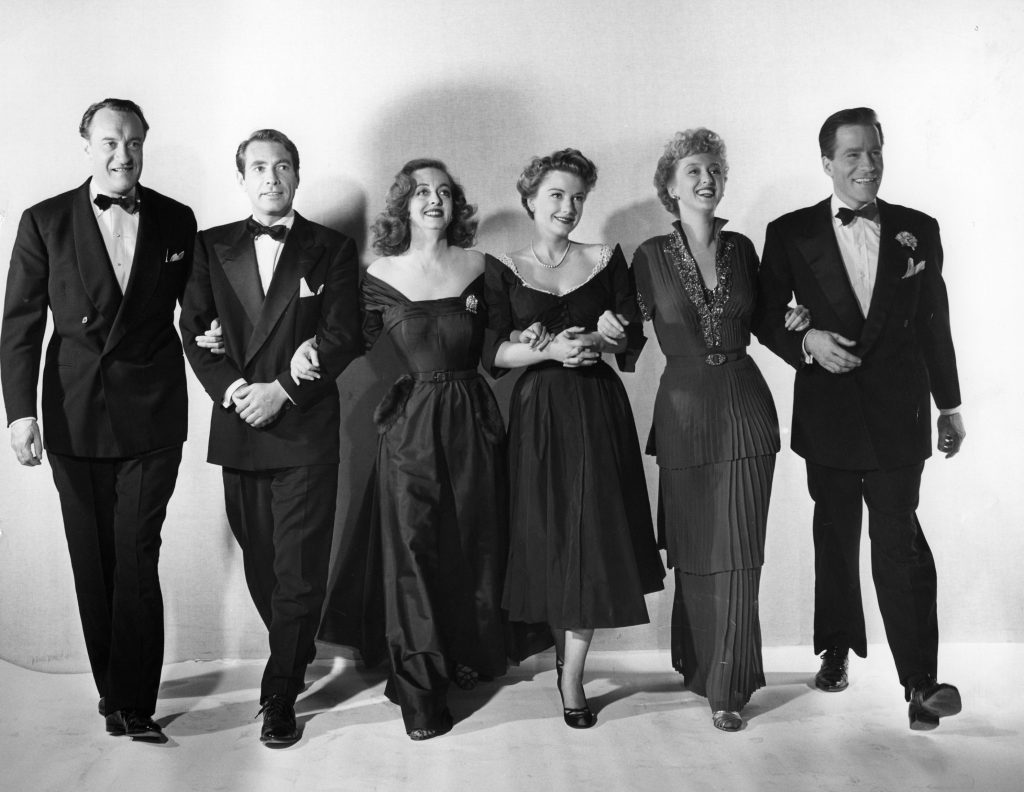
All About Eve originated with a 1946 short story by Mary Orr entitled “The Wisdom of Eve.” It had been turned into a radio play aired in early 1949 before the film rights were acquired by Twentieth Century-Fox for $3500 or $5000 (sources vary). Orr originally indicated that the story (about an aspiring young actress, Eve Harrington, who attempts to become a protégé of an older actress in hopes of furthering her own career) was based on a similar incident in the life of Polish actress Elisabeth Bergner. In later years, Orr would temper her comments to suggest that Eve was really a composite of several actresses Orr had known, as well as Orr herself.
The task of filming what would come to be known as All About Eve (working title, “Best Performance”) was handed to Joseph L. Mankiewicz, who assumed the dual role of both writer and director. Casting proved to be an interesting process. The role of the older actress, Margo Channing, was considered for Susan Hayward (too young), Claudette Colbert (actually signed, but had to withdraw due to a back injury), Marlene Dietrich (a Darryl Zanuck choice, but Mankiewicz didn’t want her), Gertrude Lawrence (wanted script changes to which Mankiewicz would not agree), and Ingrid Bergman (would not leave Italy) before Bette Davis was finally settled on for it. Other early cast considerations had Jeanne Crain playing Eve, John Garfield as Bill Sampson, and Mel Ferrer as Addison DeWitt — parts that were eventually filled by Anne Baxter, Gary Merrill, and George Sanders, respectively. Shooting was done over a two-month period beginning in early April 1950, mainly at the studio, but with some location work in New York and at San Francisco’s Curran Theatre. The completed film received its world premiere in New York on October 13, 1950, opening to popular and critical success. Fourteen Academy Award nominations followed (the most received by any single film until 1998’s Titanic, which also received fourteen). All About Eve would eventually win in six categories — Best Picture, Best Director (Mankiewicz), Best Screenplay (Mankiewicz), Best Supporting Actor (Sanders), Best Sound, and Best Costume Design.
Twentieth Century-Fox has now released All About Eve on DVD as part of its Studio Classics series. This new special edition immediately makes Fox’s older, mediocre-looking, bare-bones release a candidate for the resale bin.
Young Eve Harrington is a devotee of legendary actress Margo Channing. Becoming first acquainted with Margo’s work in San Francisco, Eve has now followed Margo to New York where she attends Margo’s every performance. Karen, the wife of playwright Lloyd Richards, meets Eve outside the theatre and invites her backstage to meet Margo. Hearing Eve’s story, Margo soon becomes enchanted with Eve and offers Eve a job as her assistant. Eve soon makes herself indispensable to Margo, but such is her attention to detail that Margo begins to grow disenchanted with her. When Eve arranges a coming-home party for Margo’s boyfriend, Bill Sampson, without telling her, Margo is furious and eventually alienates just about everyone in attendance.
Meanwhile, Eve’s true colours begin to show. She persuades Karen to arrange with the play’s producer, Max Fabian, to have Eve become Margo’s understudy. When Margo is late for an audition for an aspiring actress, Miss Casswell, Eve reads in Margo’s place. Margo is furious when she finds out and angry scenes ensue with both Lloyd Richards and Bill Sampson. Hearing of her husband’s displeasure with Margo afterwards, Karen decides to put Margo in her place. She arranges for Margo to be stranded in the country, allowing Eve to go on in Margo’s place at the theatre. She also arranges for a number of theatre critics to be in attendance, including the influential Addison DeWitt. Eve is a great success, and DeWitt offers to help promote her career.
Lloyd Richards completes his new play called “Cora” and offers the lead role to Eve, who scores a triumph playing it. Eve also schemes to steal Lloyd away from Karen, but her efforts are thwarted by DeWitt, who threatens to expose the real truth about her past. Eve wins the Sarah Siddons Award for her performance in “Cora,” but her time on top may turn out to be short-lived.
The reputation of All About Eve has always rested on the quality of its writing. It possesses, of course, impeccable production values and it is extremely well-acted, but what people really remember is the dialogue — Bette Davis’s catty comments, the beautifully modulated but acerbic remarks of George Sanders, and Anne Baxter’s velvety platitudes that gradually turn hard-edged as the film progresses. Some of the film’s most famous lines include: “Fasten your seat belts, it’s going to be a bumpy night”; “You can always put that award where your heart ought to be”; and “That I should want you at all suddenly strikes me as the height of improbability.”
Joseph Mankiewicz already had the reputation of being the best writer of dialogue on the Fox lot, a reputation cemented by his Academy Award for the script of the previous year’s A Letter to Three Wives (1949). The level of his effort on All About Eve can be measured by the fact that the script originated as Mary Orr’s dozen-page story and ended up as first a 72-page treatment and then a 223-page draft script both written by Mankiewicz, eventually shrinking to 180 pages after massaging by both him and producer Darryl Zanuck. Part of Mankiewicz’s success with the script stemmed from his affection for the stage. On the surface, the script may have presented the stage in cynical terms, but what comes through nonetheless is a love for things theatrical. That’s not just Eve alone speaking when Karen first brings her backstage and she observes “You can breathe it can’t you, like some magic perfume.” It’s that two-sided nature of the script that is one of the film’s great strengths.
Great writing doesn’t guarantee a great film if you’re stuck with players who can’t make the most of the words. Here too, All About Eve was fortunate. What was Claudette Colbert’s misfortune in having to withdraw from the role of Margo turned out to be Bette Davis’s good luck. Davis had parted company with Warner Brothers in 1949 and was finding good roles hard to come by when Zanuck approached her to play Margo. The result was a part that is one of a handful that is inextricably linked with its player. At a time when Hollywood actresses sometimes seemed more interested in making sure they were filmed from their best side than achieving the down-and-dirty realism that a part might need, Bette Davis was an exception. Our first view of her couldn’t be less flattering, appearing as she does with face covered in cold cream, hair taped back, and cigarette in hand. Right from that first instant, she makes Margo believable to us, and when she gets to her famous “bumpy night” line, we know we really will be in for it.
Matching Davis, but in a less flamboyant fashion, is Anne Baxter as Eve. She seems initially to have the unenviable role of having to play the sweet-natured innocent to Davis’s bitch, but as the roles gradually become reversed, it’s fascinating to watch the hardness in Eve’s character mirrored both in Baxter’s face and in her vocal intonation. Eve was the best role Ann Baxter ever had, although a supporting role in 1946’s The Razor’s Edge did win her a Best Supporting Actress Oscar. She vied with Bette Davis for the Best Actress Oscar for All About Eve, but probably cancelled each other out, allowing Judy Holliday to sneak off with the award for her work in Born Yesterday.
The supporting cast is uniformly excellent in All About Eve. As Addison DeWitt, George Sanders made the most of what came to be recognized as his quintessential role, and was recognized accordingly by the Academy. As effective in less juicy but equally important parts were Celeste Holm as Karen, Gary Merrill as Bill Sampson, Hugh Marlowe as Lloyd Richards, and Thelma Ritter as Margo’s maid, Birdie. Marilyn Monroe handles the small part of Miss Casswell with confidence.
Joseph Mankiewicz’s films, at least during this stage of his career, lacked any particular visual style. This was a conscious decision on his part; he believed in the excellence of his scripts and preferred to rely on them and the actors to put the film across. One result of this is the film’s tendency at times to seem somehow cold and impersonal, perhaps the only aspect of it that one can really seize upon as at all a weak point. Aside from that, everything else about All About Eve makes it easy to understand why it is such a favourite of so many film lovers, young and old — some of whom have seen it dozens and dozens of times. Mankiewicz knew that a good story well told and supported by the best of production values is more than half the battle. When the filmmakers’ love for what they’re involved in shines through as well, then you’re home and cooled out.
Back in the early days of DVD, Fox released a number of its Best Picture winners with transfers that ranged from acceptable to poor. The disc for All About Eve was one of the poorer ones. With its new Studio Classics series version, however, Fox has more than rectified the situation. The new transfer, derived from a print newly struck from restored original materials, is stunning-looking. The image is bright, crisp, and clear with deep blacks and clean whites. Shadow detail is excellent. Some of the film’s natural grain remains evident. Edge effects are non-existent. The results are a fine example of what a good restoration can achieve without the extreme video “cleansing” that some have objected to in the likes of Citizen Kane.
A noticeable degree of improvement has been achieved in the soundtrack. Most of the distracting pops, hiss, and distortion of the old DVD have been cleaned up, and the result is a clear, pleasing presentation of the dialogue-driven film. An English stereo and English, French, and Spanish mono tracks are included, as are English and Spanish subtitles.
The supplementary package on the disc is admirably comprehensive. Most useful are two audio commentaries that complement each other nicely. The first one features Christopher Mankiewicz (son of the director), Kenneth Geist (author of “Pictures Will Talk: The Life and Times of Joseph L. Mankiewicz”), and Celeste Holm. Christopher Mankiewicz does by far most of the talking, and while his comments are driven by sequences in the film, they tend to focus on his father’s life and his own relationship with his father. He’s quite forthright in his comments and the results are a fascinating insight into the Mankiewicz family. Disappointingly, Celeste Holm has little to say, chiming in with a comment probably only about half a dozen times during the whole commentary. Geist speaks a little more often than Holm and does so perceptively. At one point, he comments (at least, I believe it was Geist) that he didn’t care very much for a book on the making of the film by Sam Staggs (“All About ‘All About Eve’”), although he doesn’t say why. Fortuitous then it is that the second commentary is by Sam Staggs, who sticks much more to the film in his comments about production details, cast choices, and the like. It’s packed with information and easy to listen to. Some of the same information is covered in the 24-minute AMC Backstory episode on the film. It’s a nicely organized piece that goes beyond the typical, self-congratulatory, making-of effort. Rounding out the disc are two short, staged, original interviews with Bette Davis and Anne Baxter, restoration notes and comparisons, four MovieTone newsreels covering the movie premiere and three awards shows, and theatrical trailers for All About Eve, Gentleman’s Agreement, and How Green Was My Valley.
Excellent script + crackling dialogue + efficient direction + first-rate acting + top-notch DVD presentation = unequivocal recommendation
For more movies visit Soap2day.

